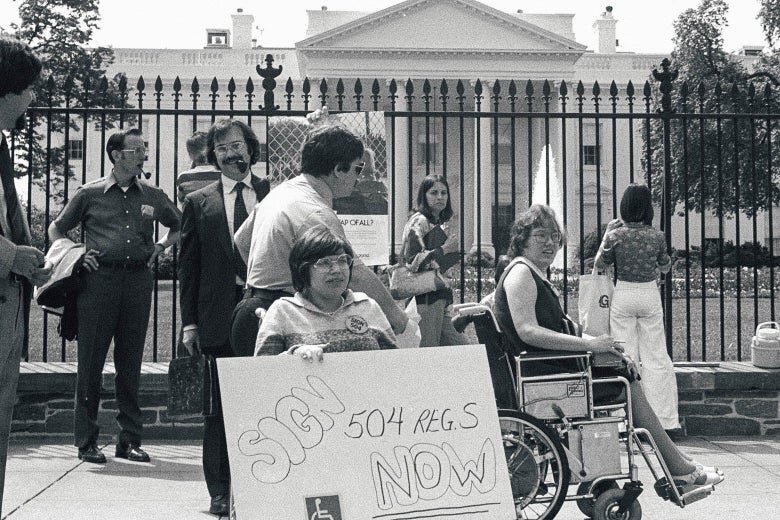The Summer Camp That Spawned a Civil Rights Movement
Crip Camp is a forensic yet emotional exposé of the restrictions of society, and the heavy cost of living outside of its norms, even if only temporarily. From the 1950s to the late 1970s, Camp Jened in the Catskill Mountains of New York was a haven for young disabled people and others who felt their humanity was marginalised – offering a brief, romantic break where friendship and independence could flourish. The camp’s ideology of ‘freedom to be yourself’ would lay the foundations for an entire disabled civil rights movement with international influence to this day.
Through the use of stunning archival footage, the documentary - from Higher Ground Productions - draws you into the experimental world of Camp Jened, where the stiff, immovable hierarchies of old began to appear more malleable through the power of music, games, socialising, open discussion and, importantly, revolution. Crip Camp would not be the powerhouse it is without such engrossing, intimate footage alongside thoughtful, retrospective interviews from a cast of endlessly interesting and hilarious characters, displaying the brightest and most self-reflective aspects of the human condition.
Their perspective reminds us that being side-lined by society, whether overtly or covertly, means the world is stacked against you, but that it does not have to be this way. One participant elaborated that all the problems associated with being disabled seemed less daunting when spending time at the camp due to the lack of societal pressure to conform or shy away. Attendees took this lesson and used it to try to change the world around them.
As the narrative moves away from the idealism of the camp itself to the struggles of the outside world, the piece becomes more political, the obstacles more real. The camp residents begin organising to change the exclusion and segregation they face. The mobilising power of collectivism and mutual support is pushed to the limits as protests against discrimination are ramped up to occupations and sit-ins of the US Department of Health. Their bravery and empowerment is bolstered by support from other elements of the counterculture movement of the late 1960s and 1970s, including anti-Vietnam War protestors and the Black Panthers. Anti-establishment feeling ran strong, and the film outlines the crossover strands of these movements, embodying the concept of solidarity but also crucially highlighting disabled rights activism as an oft-neglected struggle.
Crip Camp argues that the unique and formative camp experience is precisely what empowered these individuals to demand radical change with such determination. In doing so, it shines a light on the unknown struggles of being disabled, especially for the young, such as lacking the agency to choose their own path, being denied the right of privacy, or just never going through a rebellious phase against their parents as they depend so heavily on them for support. The film is truly eye-opening, illuminating these struggles with sharp precision, simply by giving a voice to those usually denied one, even when they occupy government buildings. Indeed, it transpires that local news stations chose not to cover the protest at the time, with all the candid footage of the sit-ins, amazingly, coming from a single interested local reporter.
Crip Camp shows that freedom cannot be won without the aches, the struggle and the willpower to overcome. Camp Jened birthed the idea of a disabled rights movement in the U.S, but without mass, radical action including hunger strikes, occupying buildings and picketing the White House, it would have remained just that. Seeing disabled people physically and symbolically lift themselves up the steps of Congress is an inspiring reminder that the fight for marginalised groups is not over. This moving tale of solidarity and liberation creates awareness of the damaging structures in society while maintaining that people can change their own circumstances, with the enduring phrase of resistance loudly echoing, ‘if not now, when?’








